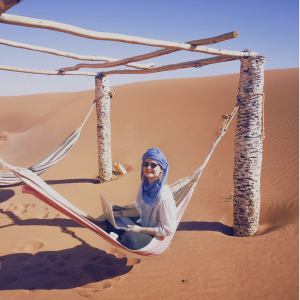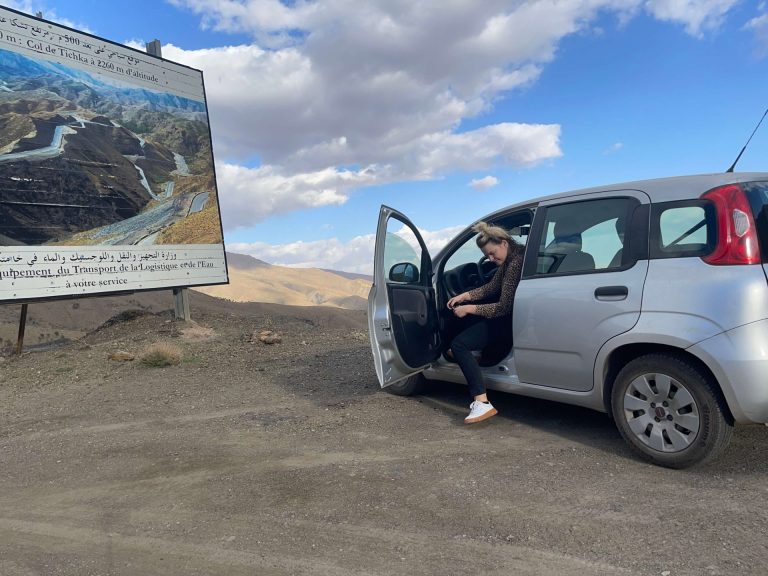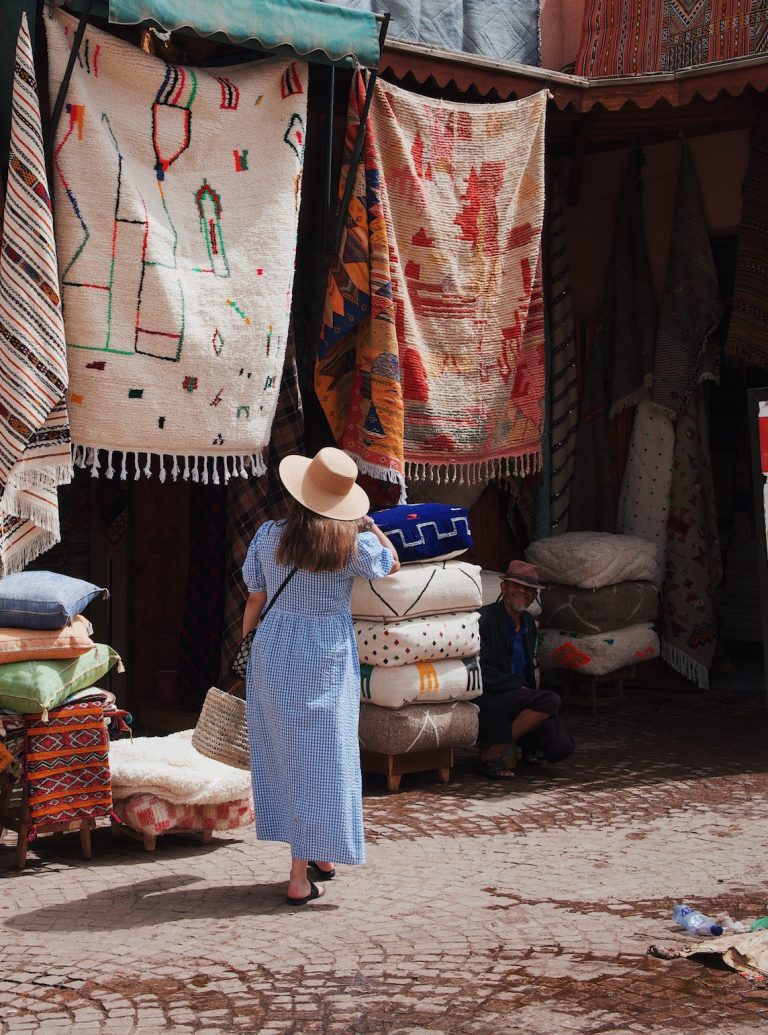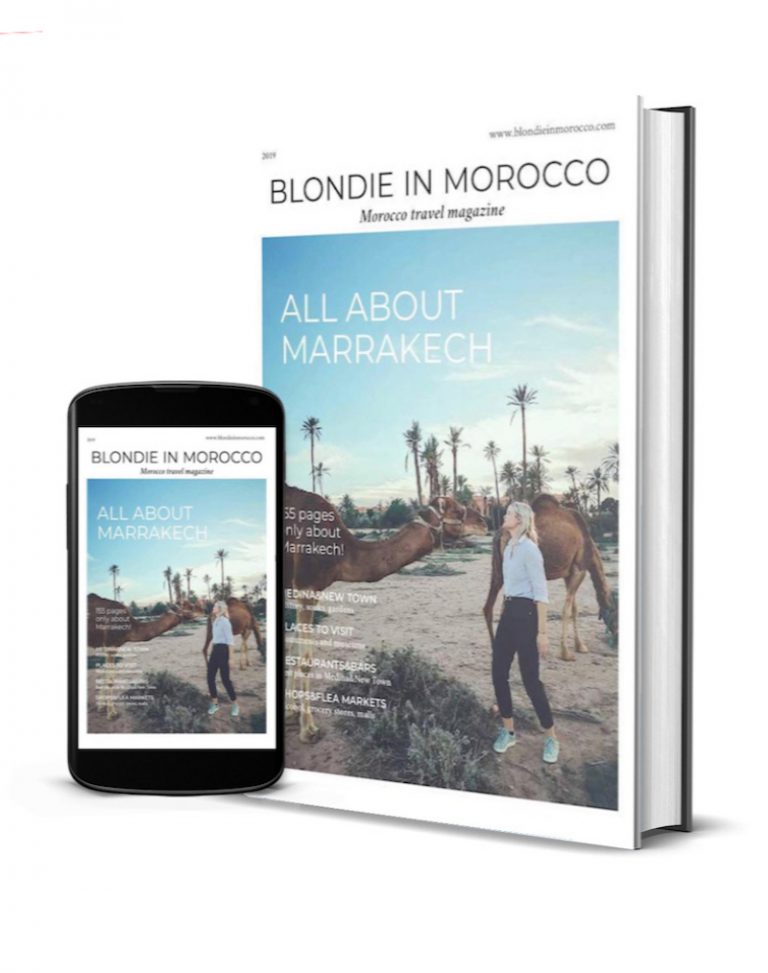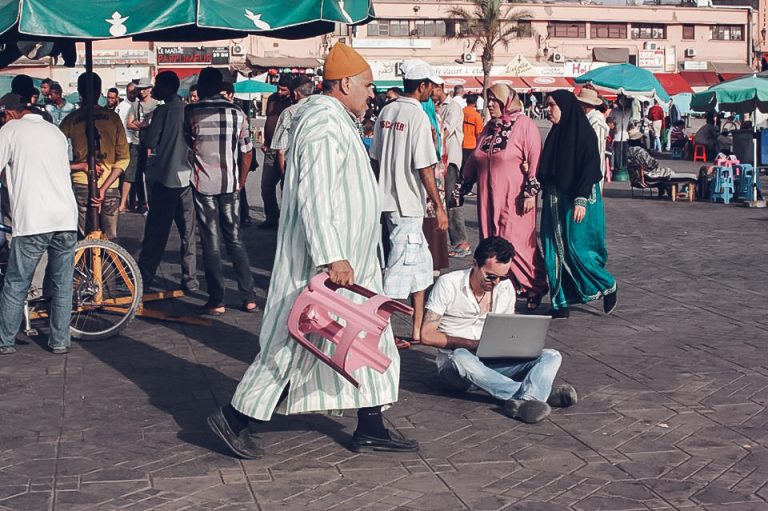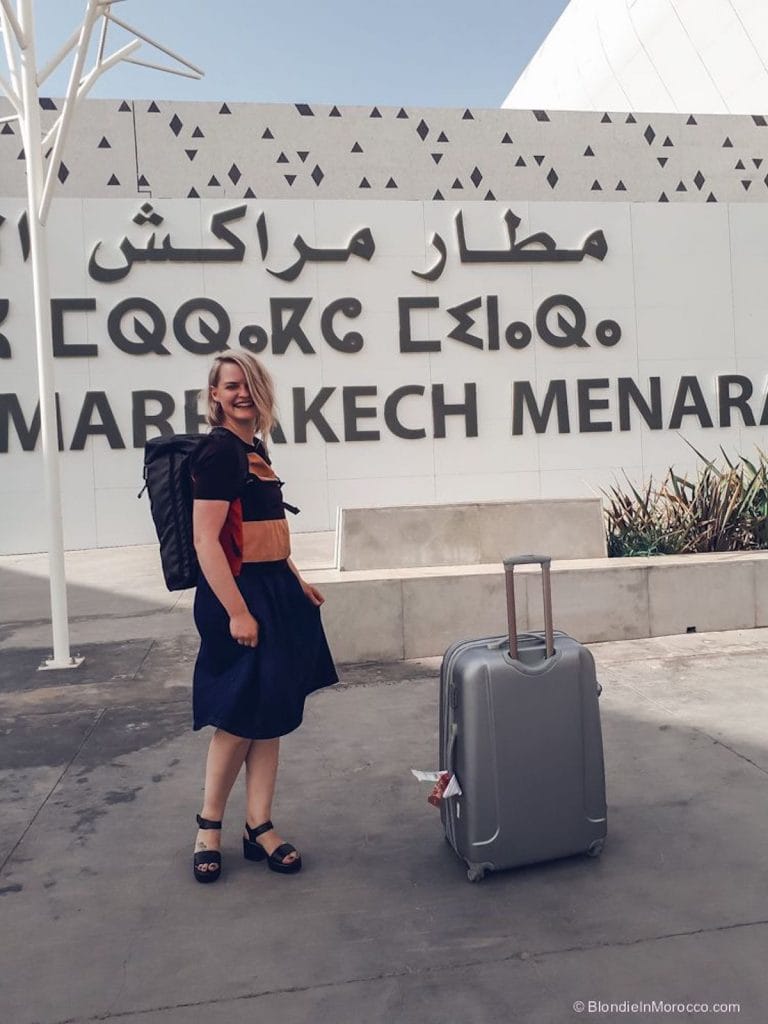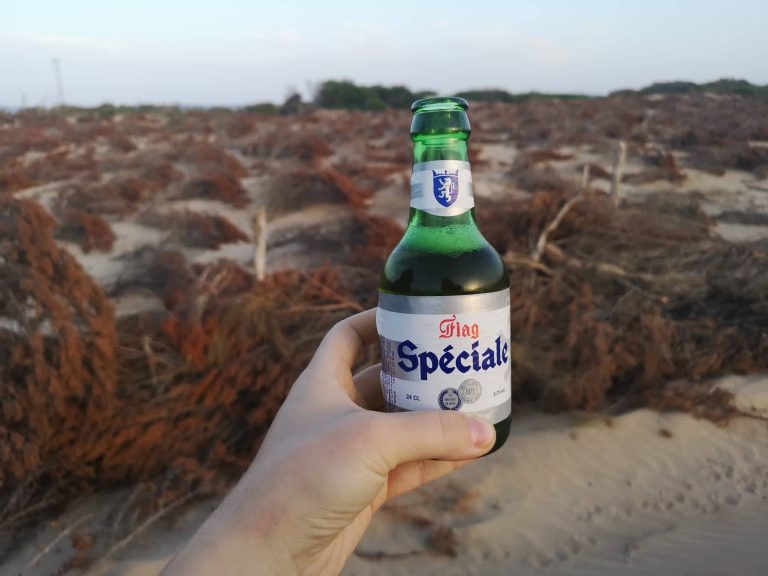Ramadan in Morocco: all you need to know for your travels
Ramadan in Morocco is a unique experience for travellers when the normal rhythm of life in Morocco stops. Travel during Ramadan in Morocco can become a special holiday.
Ramadan dates in Morocco in 2024: March 12 – April 10
What is Ramadan?
Ramadan is the 9th month in the Islamic lunar calendar, during which the Qur’an was revealed to the Prophet Muhammad. For Muslims, it is a month of fasting – eating, drinking, making love, and smoking is not allowed from sunrise to sunset. Fasting (Sawm) is one of the five pillars of Islam. Through fasting, Muslims restart their awareness of and gratitude for everything God has provided.
At the centre of Ramadan, there are spiritual things – praying more, helping the poor, thinking over one’s life and, of course, getting closer to Allah. Fasting seeks to show all Muslims what it means to be poor in a modern world where not everyone has something to eat.
Fasting is optional for children under the age of 16, nursing mothers, pregnant women, the sick, women in their menstruation period, hard-working Muslims who would otherwise be unable to support their families, or travelling people. All those with justifiable reasons to eat during Ramadan may fast after Ramadan, thus redeeming their eating.
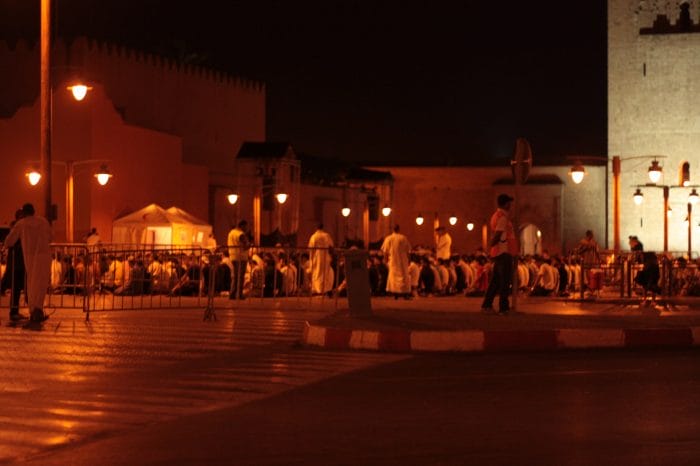
FASTING: IFTAR AND SUHOOR
During Ramadan, Muslims don’t eat or drink anything during daylight hours. There are two meals eaten at a specific time, and it’s useful to know about them if you travel to Morocco during Ramadan. Muslims eat one meal before dawn, the “predawn meal” or the ‘suhoor/sehri’ (around 4 am), and another after sunset, called the “iftar” or Ramadan breakfast (around 7 pm).
Most Muslim cultures focus on food during Ramadan, and especially the evening meal iftar is a big celebration for everyone. As the sunset approaches, most local restaurants open their doors wide, serving traditional iftar meals. Some people sit down in front of their food plates and endure the smell, patiently waiting for the prayers announcing the end of the day of Ramadan.
In Morocco, traditional Ramadan food is the Harira soup, eaten with boiled eggs, dates, Moroccan pancakes Msmen, yoghurt, milk, and sweets like Chebakia that is sold on every corner during Ramadan, but I find it too sweet for my taste.
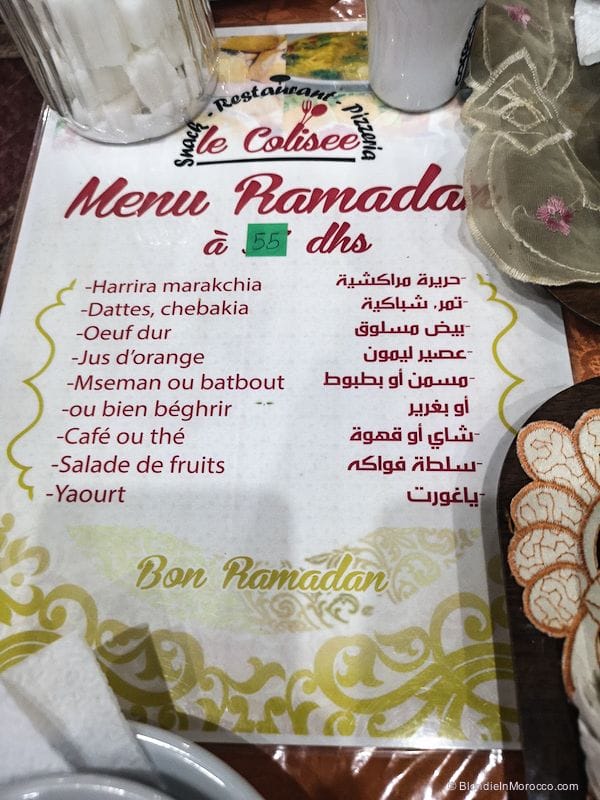
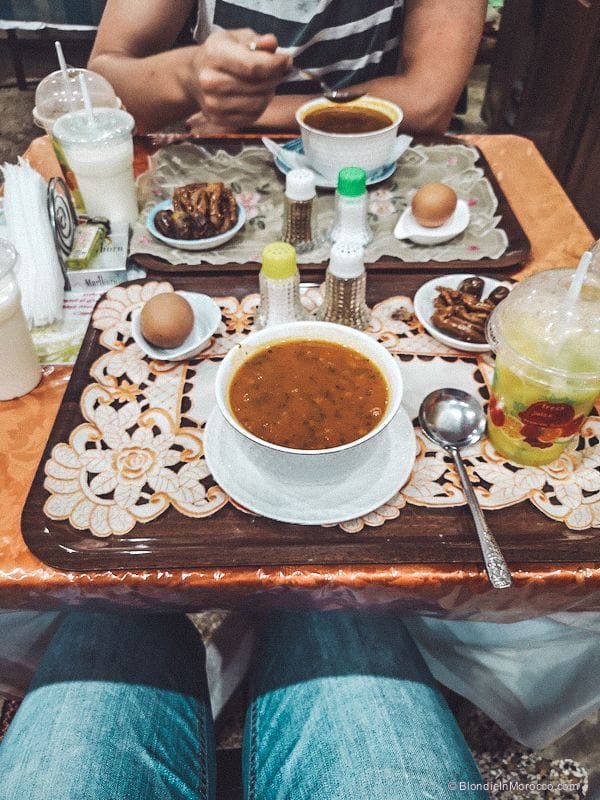

Even though I am not Muslim, I love going out for the Iftar meal. I would sit in the local restaurant and patiently wait for the signal to eat. And then, voilà, you hear the firing cannon, the whole city is instantly empty. Fasting Muslims are running home or to restaurants, and the cleverest ones immediately fill their stomachs with delicious food. So if you travel during Ramadan, don’t plan any dinner (only Iftar meal) or other activities from around 7 to 8 pm.
WHO ARE THESE FIRING SOUNDS?
During Ramadan, every evening, right before sunset, you will hear a loud noise. These booming sounds are called “Medfaa” (Midfa al iftar), the Cannon for breakfast, which signals the start of Ramadan and the end of each day’s fasting. The Cannon is an ancient tradition that started in Egypt and spread to several surrounding Arab countries.
Often, especially for the Iftar, instead of the cannon blasting, you will hear the sound of an air raid siren called Zowaka. I don’t hear the difference between Zowaka and Cannon sounds, so don’t get confused if you hear different namings.
Seven firings of cannon announce the start and the end of Ramadan. Then, every evening one cannon boom announces Iftar time, the breaking of the fast, followed by the call to prayer.
A second cannon firing is followed much later, in the early morning hours, around 4 am, during the call to Fajr prayers (the first of the five daily prayers). The firing of cannons wakes Muslims up for the Suhoor/Sehri meal. The third firing is when everyone should stop eating Suhoor meal, and go to sleep. Then, starts a new fasting day.
During Ramadan, at night, you might hear or even see (if you wake up early) a special person called Nafar (a town crier) with a traditional robe called gandora, slippers & a hat. Nafar’s task is to walk down the streets, blowing a horn and calling people to wake them up for suhoor, the pre-dawn meal.
LIFE DURING RAMADAN
During Ramadan, many shops are closed; if they are open, that is only in the evening. Of course, this does not apply to tourist shops and cafes, most of which are in Marrakesh’s Medina. It is better not to plan any significant work, like home reconstruction, during Ramadan because local workers will not find the strength to do it.
And that is no wonder, given that they give up food and water at the temperature of +45 degrees Celsius and get up before dawn for fajr prayer and an early breakfast.
LAYLAT AL-QADR
The last 10 days of Ramadan are the holiest days for Muslims because that is when the Prophet Muhammad received the first ayahs (verses of the Qur’an). The most significant night is called Laylat al-Qadr (Night of Power, Night of Destiny).
The surah (chapter of the Quran) states Laylat Al Qadr is better than 1,000 months, meaning the worship Muslims do on this night earns rewards of life. Which would translate into 83 years in modern time measurement. In the Quran, it is stated, “Whoever establishes the prayers on the night of Qadr out of sincere faith and hoping to attain Allah’s rewards then all his past sins will be forgiven”. That’s why in the last days of Ramadan, Muslims pray not only during the day but also during the night, until 5 am.
EID AL-FITR
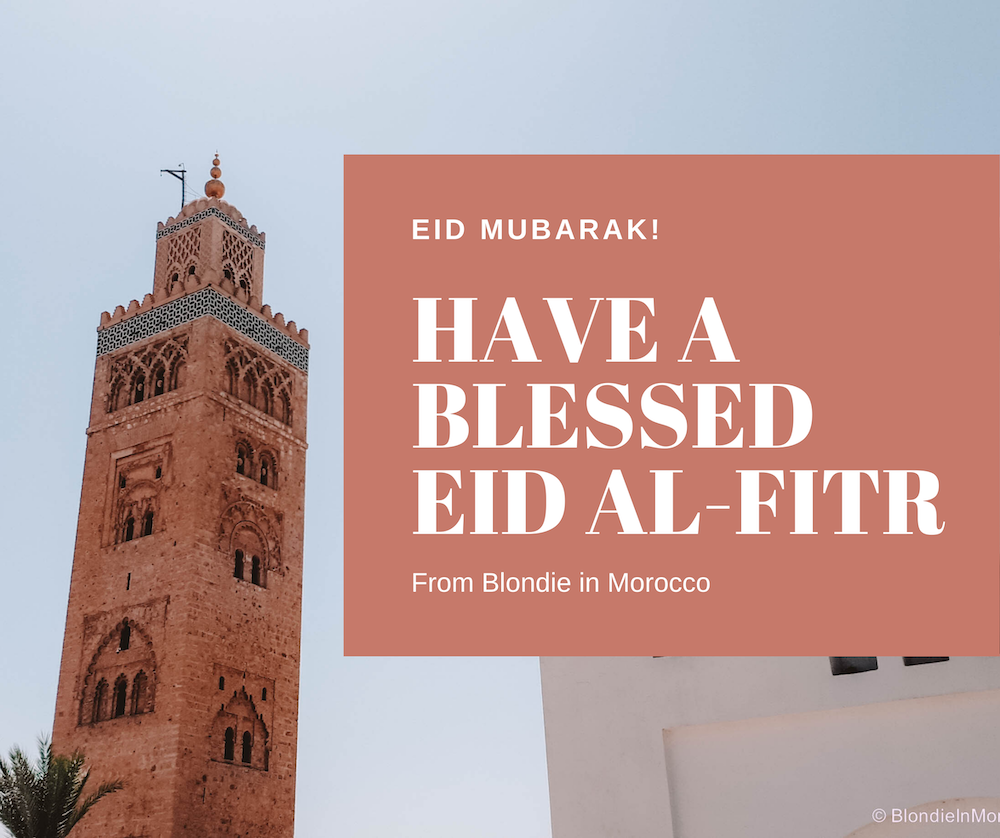
The end of Ramadan is announced by the young moon appearing in the sky. Then begins the one celebration of Eid al-Fitr (also called the “Festival of Breaking the Fast”), during which everyone makes up for the month of fasting. In the main squares, there are free lunches or other kinds of help offered to the poor. Eid al-Fitr is one of the biggest Islamic holy festivals in the world.
This celebration begins early in the morning, just before sunset, when Muslim men gather for common prayer. At the same time, women prepare a special breakfast of Eid al-Fitr, which usually consists of Moroccan pancakes (baghrir or melwi). After breakfast, families gather together drink tea, children are dressed in new clothes, and adults wear traditional Moroccan clothing.
Up to 48 hours before the Eid al-Fitr prayer, Muslims must pay Zakat Al Fitr, a charity taken for the poor. In Morocco, the minimum amount of Zakat Al Fitr is fixed by the government, last year it was 13 DH per person (minimum).
TRAVELING TO MOROCCO DURING RAMADAN
It is said, “When in Rome, do as the Romans do”, so during Ramadan, try to keep local traditions as well
- most local cafes and restaurants close for the month of Ramadan. However, tourist restaurants and cafes are open at regular hours.;
- dinners in touristy restaurants will be served later, after the Ramadan iftar dinner; so either plan to eat around 8pm, or eat the Ramadan dinner together with locals.
- all tours, transfers, and tour guides are available during Ramadan, so don’t be afraid of being stuck in a hotel;
- local and intercity buses and trains run during Ramadan;
- in smaller Moroccan cities, most local cafes and restaurants will be closed and open only in the evening. So maybe arrange your lunch in advance. Usually, drivers know places that are open for tourists for lunch during Ramadan;
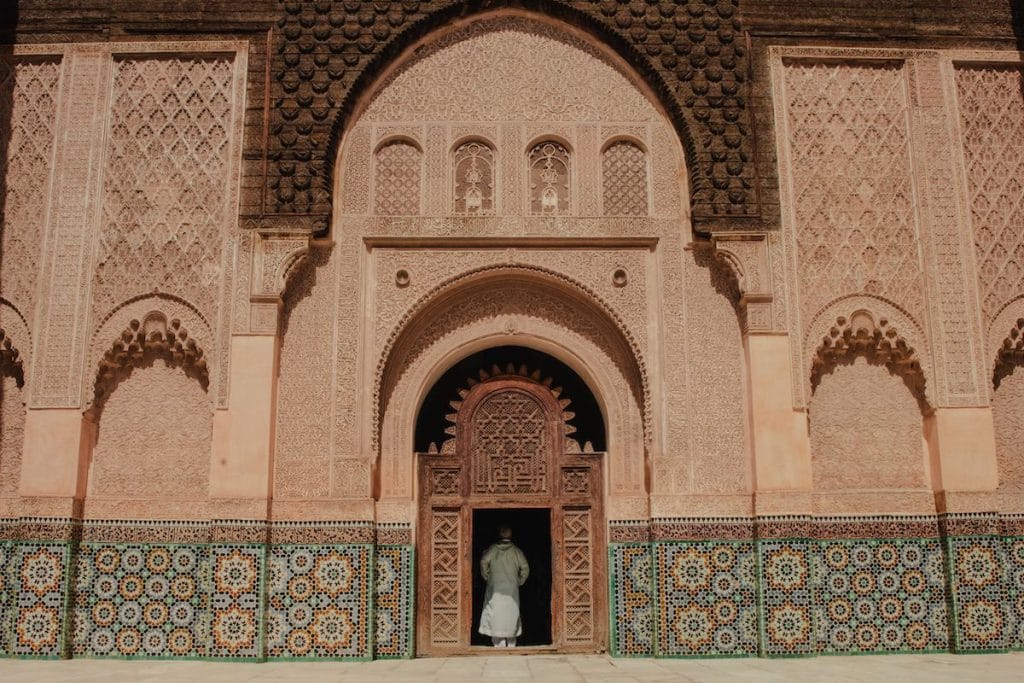
- a very important moment during Ramadan is the iftar breakfast, which starts at sunset. Because this is the first meal of the day for Muslims, everyone gathers in one place to eat. Once the iftar starts, you might have to wait for the cafe staff to finish their meals first. Tour drivers also try to drive to places before the start of the iftar;
- during Ramadan, alcohol is sold strictly to foreigners and non-Muslims ONLY. All liquor stores require you to show your passport (even foreigners) without exception. Muslims are not allowed in the bars during Ramadan, so many local bars are closed for the month.


